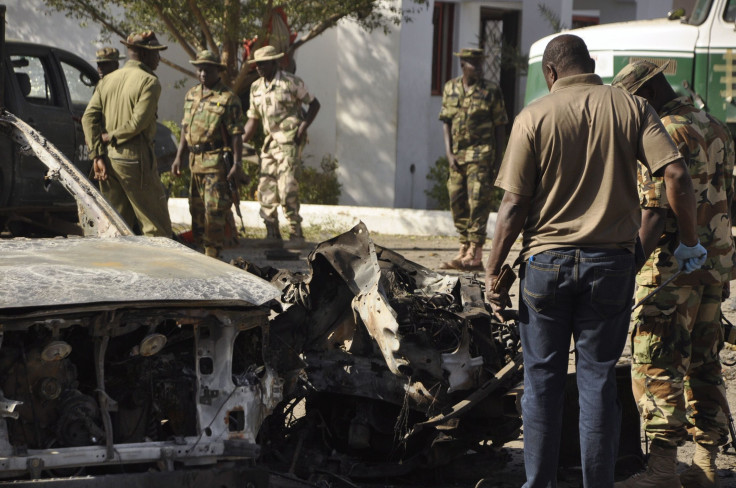Boko Haram Insurgency: Cameroon's Military Carries Out First Airstrike Against Nigerian Militant Group

Cameroon’s military announced Monday that it had carried out its first airstrikes against Nigerian Islamist group Boko Haram following a cross-border attack by the group on five villages and a military base. An army spokesman announced that the military had repelled the attack and regained control of the base. He did not confirm local media reports that at least 30 people had been killed by the militants, according to the BBC.
Boko Haram has stepped up its attacks on both sides of the border in recent weeks, raising concerns that it could begin to threaten Cameroon’s security. The group’s coordinated assault on the military base and the five villages in Cameroon’s far northern region showed a change in tactics by the group, said Cameroonian Information Minister Issa Tchiroma, according to Reuters. "Units of the [Boko Haram] group attacked Makari, Amchide, Limani and Achigachia in a change of strategy which consists of distracting Cameroonian troops on different fronts, making them more vulnerable in the face of the mobility and unpredictability of their attacks," said Tchiroma.
Cameroon’s incursion against the group on Monday marks the first time it has used its air force in the fight against Boko Haram, which has been increasingly expanding its operations from its base in northern Nigeria. Cameroon’s military said last week that it had dismantled a Boko Haram training camp in the northwest of the country, arresting or killing dozens of militants and seizing 84 children who were being trained there, according to Reuters. The raid followed an earlier army offensive against the Islamist group that resulted in the killing of 116 militants.
Boko Haram has sought to carve out an Islamic state in northern Nigeria since it began its insurgency in the country in 2009. Since then, the group has seized vast swathes of territory in the north and posed a major security threat to the government of Nigerian President Goodluck Jonathan. At least 2,000 civilians in Nigeria have been killed by the group this year alone, while some of its offensives, including the kidnapping of 200 schoolgirls in April, have sparked international outrage, according to the BBC.
© Copyright IBTimes 2024. All rights reserved.












